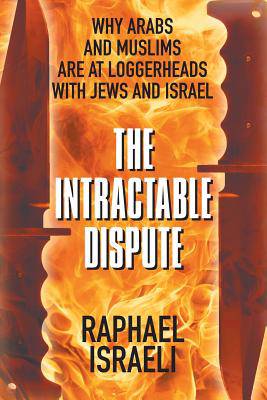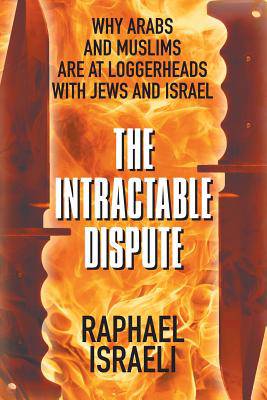
- Afhalen na 1 uur in een winkel met voorraad
- Gratis thuislevering in België vanaf € 30
- Ruim aanbod met 7 miljoen producten
- Afhalen na 1 uur in een winkel met voorraad
- Gratis thuislevering in België vanaf € 30
- Ruim aanbod met 7 miljoen producten
The Intractable Dispute
Why Arabs and Muslims Are at Loggerheads with Jews and Israel
Raphael IsraeliOmschrijving
The Middle East conflict, which has been raging for a century and seems to have no end in sight, is not over territory or other assets, but is historically anchored in the Islamic tradition, which has become the preponderant faith of the Arabs.
Being a qualitative factor of an either-or import from the Muslim point of view, which is today best expressed by Iran, the Muslim Brothers, Hamas, Hezbollah, and other radical Muslim movements, it is not given to negotiation and compromise, as any other political conflict, but is governed by absolutes and one-sided perspectives.
Arab nationalism, Islam, and Zionism are the main political and religious movements taking center stage in this conflict.
The intractable nature of the conflict has so far defied all negotiations, agreements, and peace treaties. All the proposed "peaceful" settlements have thus far remained brittle, while the fundamental issues of stereotyping, suspicion, hatred, and condescendence have remained in place, unshaken.
This book confronts two contradictory ideologies and attempts to bridge them over.
Born in Fes, Morocco, Raphael Israeli has taught Islamic, Chinese, and Middle Eastern history at Hebrew University in Jerusalem. A graduate of Hebrew University in history and Arabic literature, he earned a Ph.D. in Chinese and Islamic history from the University of California, Berkeley in 1974. Now retired, he has been a Fellow of the Harry Truman Research Institute at Hebrew University and the Jerusalem Center since the 1970s. Professor Israeli is the author of over 50 research books, a dozen edited books, and 100 scholarly articles about Islam.
Specificaties
Betrokkenen
- Auteur(s):
- Uitgeverij:
Inhoud
- Aantal bladzijden:
- 558
- Taal:
- Engels
Eigenschappen
- Productcode (EAN):
- 9781948858809
- Verschijningsdatum:
- 21/02/2019
- Uitvoering:
- Paperback
- Formaat:
- Trade paperback (VS)
- Afmetingen:
- 152 mm x 229 mm
- Gewicht:
- 807 g

Alleen bij Standaard Boekhandel
Beoordelingen
We publiceren alleen reviews die voldoen aan de voorwaarden voor reviews. Bekijk onze voorwaarden voor reviews.











